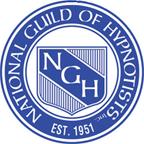The majority of people who contact Inception Hypnotherapy and request help to overcome an issue don’t realize that what they perceive to be “the issue” is actually a by-product of other issues in their life. Not surprisingly, when the “whole picture” of the person’s life is considered, most of the time the primary cause of the other issues is stress or anxiety. Using hypnotherapy, when the underlying cause of the stress is addressed, overcoming the issue that the person first wanted to solve becomes much easier. Whether it's a short-term frustration like a traffic jam or a major life event like divorce or job loss, psychological stress affects our bodies.
Stress can be highly personal, with one person's unpleasant experience another's exhilarating adventure. And a little bit of stress has been shown to be good for memory and motivation. However, about 70% of doctor visits and 80% of serious illnesses may be exacerbated or linked to stress.
Here are some of the major ways that stress can affect the body. The good news is that there is much hypnotherapy can do to help you reduce the impact of stress in your life.
Fight or flight
The stress response has evolved over a millennium to protect you from danger. Also known as the flight-or-fight response, it gets the body ready for action. So if you're in danger, the brain's hypothalamus sends triggers - both chemical and along the nerves - to the adrenals, which are glands that sit on top of each kidney like a hat perched on a head.
The adrenals then churn out hormones, such as cortisol, which raise blood pressure and blood sugar (among other things). This is great if you need to outrun a hungry lion, less so if the perceived threat is a looming layoff. And it can be harmful to your health if sustained over time.
Cravings
Studies have linked cortisol, a hormone released during times of stress, to cravings for sugar and fat. Scientists believe the hormone binds to receptors in the brain that control food intake. And if you already have a high body mass index, you may be even more susceptible.
Fat storage
"You can clearly correlate stress to weight gain," says Philip Hagen, MD, an assistant professor of medicine at the Mayo Clinic in Rochester, Minn.
Part of that link is due to poor eating during stress, but the stress hormone cortisol may also increase the amount of fat tissue your body hangs onto and enlarge the size of fat cells. Higher levels of cortisol have been linked to more deep-abdominal fat - yes, belly fat.
Heart
The exact relationship between stress and heart attack is still unclear, but evidence is mounting that there is one. A recent study of 200,000 employees in Europe found that people who have stressful jobs and little decision-making power at work are 23% more likely to have a first heart attack than people with less job-related stress.
Insomnia
Stress can cause hyper arousal, a biological state in which people just don't feel sleepy. While major stressful events can cause insomnia that passes once the stress is over, long-term exposure to chronic stress can also disrupt sleep and contribute to sleep disorders.
Headaches
"Fight or flight" chemicals like adrenaline (epinephrine) and cortisol can cause vascular changes that leave you with a tension headache or migraine, either during the stress or in the "let-down" period afterwards. Stress also makes your muscles tense, which can make the pain of a migraine worse.
Memory
Too much of the stress hormone cortisol can interfere with the brain's ability to form new memories. During acute stress, the hormone also interferes with neurotransmitters, the chemicals that brain cells use to communicate with each other. That can make it hard to think straight or retrieve memories.
Hair
Severe stress may even harm your hair. While the research is mixed, stress is thought to play a role in triggering hair loss in the autoimmune condition called alopecia areata. Stress and anxiety can also contribute to a disorder medically known as trichotillomania, in which people have a hard-to-resist urge to pull out the hair from their own scalp.
Pregnancy
The normal stresses of everyday life are unlikely to affect a pregnancy, but severe stress, like losing a job or going through a divorce, can increase the chances of premature labor. There’s even some research suggesting that very high levels of stress can affect the developing fetal brain.
Stress may even affect the ability to get pregnant in the first place. One study found that women with the highest levels of a stress-related substance called alpha-amylase were about 12% less likely to get pregnant each cycle than those with the lowest concentrations.
Blood sugar
Stress is known to raise blood sugar, and if you already have type 2 diabetes you may find that your blood sugar is higher when you are under stress.
One study of obese black women without diabetes found that those who produced more stress-related epinephrine when asked to recall stressful life events had higher fasting glucose and bigger blood sugar spikes than those with lower epinephrine, suggesting it might raise your risk for getting diabetes too.
Digestion
Heartburn, stomach cramping, and diarrhea can all be caused by or worsened by stress. In particular, irritable bowel syndrome, or IBS, which is characterized by pain and bouts of constipation and diarrhea is thought to be fueled in part by stress. However, stomach ulcers, once thought to be caused by stress, are triggered by H. pylori bacteria, which can be treated with antibiotics.
Blood pressure
A stressful situation can raise your blood pressure temporarily by constricting your blood vessels and speeding up your heart rate, but these effects disappear when the stress has passed. It's not yet clear whether chronic stress can cause more permanent changes in your blood pressure.
Brain tissue
Brain-imaging research shows that major stresses can reduce the amount of tissue in regions of the brain that regulate emotions and self-control. This damage may make dealing with future stresses even harder, but it can likely be reversed with effective stress-management techniques.
Skin
Most acne sufferers already suspect this is true, and they seem to be right: Stress can give you zits. Research suggests that students with acne are more prone to outbreaks during exams compared to less stressful time periods. An increase of male hormones known as androgens could be a culprit, particularly in women.
Stress can also trigger psoriasis to appear for the first time or make an existing case more severe.
Back pain
Stress can set off an acute attack of back pain as well as contribute to ongoing chronic pain, probably for the simple reason that the "fight or flight" response involves tensing your muscles so that you're ready to spring into action.
One recent study in Europe found that people who are prone to anxiety and negative thinking are more likely to develop back pain, while a U.S. study tied anger and mental distress to ongoing back pain.
Sex appeal
One study found that women were less attracted to men with high levels of the stress hormone cortisol compared to men with lower levels. Researchers believe this may be because low levels of stress hormones suggest strength and health, which are desirable traits to be passed on to offspring.
Stroke
A study of 20,000 people who had never had a stroke or heart disease found that stress was linked to an increased risk of stroke. In another recent study, healthy adults who had experienced a stressful life event within the past year were four times as likely to suffer a stroke than their less-stressed counterparts. One theory is that the increased risk is due to stress-related high blood pressure and/or narrowing of the arteries (known as atherosclerosis).
Premature aging
Traumatic events and chronic stress can both shorten telomeres, the protective caps on the ends of cell chromosomes, causing your cells to age faster.
Colds
People exposed to common cold viruses are less likely to fight off the germs successfully if they have ongoing psychological stress in their lives. Researchers believe stressed people's immune cells may be less sensitive to a hormone that turns off inflammation, which could offer a clue to why stress can be correlated with more serious diseases as well.
Asthma
Stress seems to exacerbate asthma in people who have the lung condition. In one study, children who experienced severe stress such as the death of a loved one had a nearly two-fold increase in the risk of an asthma attack over the following two weeks compared to those not under stress. Researchers aren't sure why, but stress may amplify the immune response to asthma triggers such as pollen, animal dander, or dust.
Job performance
Studies of employees ranging from military personnel to bankers show that stress reduces productivity and satisfaction at work, and is linked to depression too.
"Stress clearly has an effect on productivity, and the costs of that for employers can be very high," Dr. Hagen points out.
Seizure
Although it's not all that common, doctors at the John Hopkins Hospital have found that some people who are especially sensitive to stress can experience seizure-like symptoms, such as far-off staring and convulsions. Up to one-third of people treated for seizures at the hospital didn't respond to standard anti-seizure medication and doctors concluded that they had stress-induced symptoms. Known as conversion disorder, some people can subconsciously express emotional trauma as physical symptoms, they say.
Questions for Yourself from Inception Hypnotherapy |



